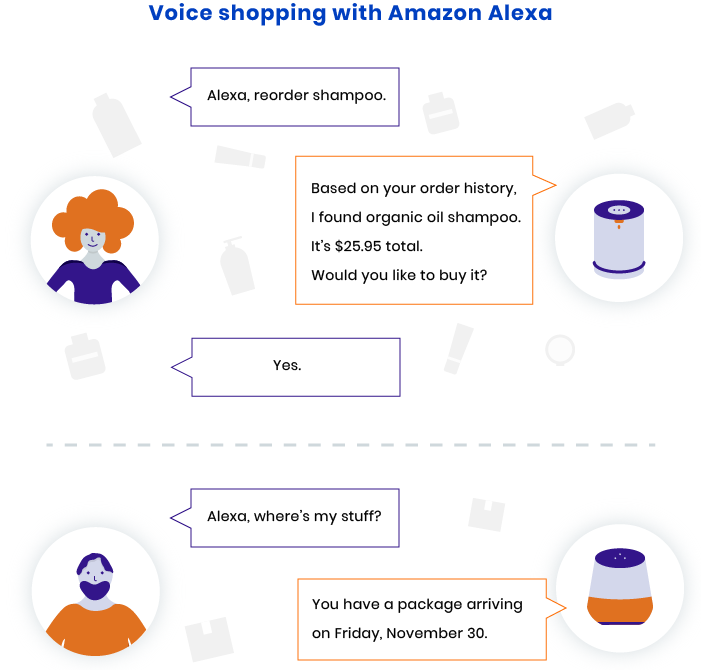How will AI transform e-commerce?
Technology has steered the e-commerce industry in a truly fascinating direction. We get recommended products we want from brands we trust, on sites we’ve never even purchased from before. Google knows what you’re looking for before you do. Your shopping cart’s already saved your credit card details, your password and your shoe size, making your shopping experience a breeze. But ease-of-use is only the beginning…what will machine learning do for the e-commerce industry? How is artificial intelligence going to transform the way we shop, the way marketers sell, the way retailers operate? Industry professionals around the world have discussed the future of marketing in a rapidly changing technological environment. Here are three ways ‘business as usual’ will change thanks to artificial intelligence.
Content generators: auto-journalism and content marketing
We’re already familiar with basic text editors. Auto-correct is a fairly simple (and at times flawed) capability that’s been around for a long time. But turn your attention to platforms like Grammarly which launched in 2009. Grammarly doesn’t simply move your commas around and correct your spelling errors; it suggests more nuanced uses of vocabulary, facilitates language-specific style checks, refines your language and even acts as a plagiarism detector. Grammarly may not have incredibly advanced capabilities but it does hint at the kind of changes that are on the fore with regards to content creation. This level of automation for a copy-writing tool can save content marketers time, and saving time is saving money which can be spent perfecting other areas of business.
ArticleForge is a content-generator that supposedly writes high quality articles (and pulls images from online automatically) and has been around since 2016. Most of the reviews you’ll read for this generator will say that the content is certainly there, but that the human element is missing. Again, the technology hasn’t been perfected but the notion of content that can be generated with a simple text prompt is quite stirring. There’s a huge gap between content demand and content creation in marketing. With consumers expecting brands to release content daily- a precedent which many big names have been able to sustain- the possibility of streamlining the content creation process comes as quite a relief. Copy today needs to be more engaging, accessible and informative than ever before- so mimicking the conversational tone of human language is critical when you’re creating content. ArticleForge simply isn’t there yet but the fact is, we’re inching closer and closer to developing technology that can emulate human speech perfectly.
News station Xinhua News announced their AI-powered software at a World Internet Conference in China in 2016. The software makes use of facial modelling and speech synthesis to create virtual news anchors that look and sound like people.
The Washington Post managed to develop an AI program in-house, allowing them to input statistics from the 2016 Olympics into the auto-journalism program that output short articles and reports on the fly. The reports were brief – averaging at about 750 words – but virtually indistinguishable from other Washing Post articles written by human journalists. Will automated content generators eventually be able to write content optimized for SEO? How will content marketers leverage the power of AI to enhance their marketing strategies? Time will tell.
Chatbots: improving the customer experience
Chatbots are one of the biggest e-commerce trends in 2019. Business Insider predicted that 80% of businesses will be utilizing chatbots by 2020 and companies in a range of industries are realizing their mutual benefits. South African life insurance company Discovery launched a chatbot on their website in 2017 which answers an average of 4800 questions per day. Food delivery companies integrated bots with Facebook Messenger and Google Home, allowing customer to order pizza and the like using various devices, in a conversational manner. Chatbots can even remember your previous orders and suggest other meals you may enjoy. For brands selling products online, chatbots can be used strategically not just to improve customer service but to encourage sales. H&M’s chatbot asks website visitors about their style preferences and recommends products based on their responses.


The possibilities are endless now that companies are investing in AI innovations and unique uses for chatbots.
Voice assistance

Voice assistance makes the customer experience incredibly simple. Rather than logging in, verifying your cell number and having to complete a tedious Captcha before you even get to look at products- with voice assistance integrated on e-commerce platforms, you can order shoes while you’re washing dishes just by communicating verbally with your cellphone. Online retailers will have to prepare for the proliferation of voice assistance in two ways:
-
-
- optimizing their websites for voice search, and
- getting featured on a Voice Assistant
-
Due to the phrasing of voice searches, optimizing your content to show up in search results is slightly different to the approach with text-based searches. Users will asks things like “where is the closest shoe store?” rather than just Googling “shoe store near me.” A slight difference, yes, but an important one when it comes to SEO. For voice searches, marketers will probably need to broaden the scope of their keyword use for long-tail phrases like “where can I find second-hand Dell laptops for under $500?”
Big brands like Walmart and H&M have teamed up with Google Assistant to get voice ordering implemented as a feature. There’s no doubt getting voice-enabled ordering on big VAs like Google and Alexa is a pricey affair, but it may be the conventional approach for all retailers and marketers in the near future as the shopping experience becomes increasingly streamlined.
Artificial intelligence is going to change things in a big way- minimizing complexity, streamlining processes and increasing agility for retailers. Make sure you stay ahead of the curve. ShoppingFeeder will be here to keep you on the pulse.

